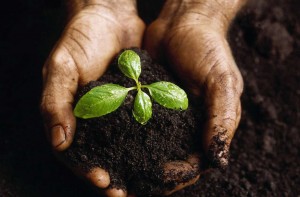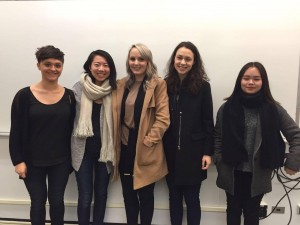“A Little Rain Never Hurt Noone”-Tom Waits

http://www.shutterstock.com/video/clip-6671882-stock-footage-garden-alley-on-a-rainy-day.html
Welcome back to our blog site! We have been working away on our project for the Little-Mountain Riley Park Food Hub and recently finished our proposal report. We have had a few “rainy days” on the project front but are starting to see a break in the clouds!
Weekly Objectives
As a recap, in the previous weeks we focused on meeting with our community partner and drafting our project proposal. In the following three weeks, our objectives are as follows
February 15th-19th: We will develop a set of criteria to choose the workshops that we incorporate into our workshop package. Thus far we are not sure of what criteria to focus on. We plan on meeting with our community partner to gain more insight on the criteria she believes would be most beneficial for the target population. Furthermore these criteria will be developed through
1) a review of workshops that are available throughout areas with similar climate to Vancouver
2) Focus on criteria that will include and engage the target audience of the Little-Mountain Riley Park Food Hub (newcomers, elderly and those with fixed incomes). Thus far cost, accessibility and language are assumed to be target criteria.
3) Criteria that have been found to be beneficial to successful community gardens through a literature review.
February 22nd-26th: Our plan for this week is to validate our criteria and begin choosing workshops using our criteria.
In order to validate our choices of criteria we plan on contacting key community members that are involved with the target populations. Our community contact, Joanne McKinnon, has provided us with a list of programs throughout the community that focus on these populations. We plan on contacting key members that run these organizations and interviewing them. We want their feedback to ensure these target populations are the focus of the workshops.
February 29th-March 4th: In this week, we will continue to search and choose workshops. We will also use this time to begin drafting a design for our package; while we could start this now, we believe that it is necessary to have some idea of the workshops we are selecting to make the layout and usability of the package as good as possible.
Achievements
Our main achievement thus far was the completion of the our project proposal draft. Working through the aim and objects have helped narrow the scope of this project. It helped our group members connect to one another as well. We now understand how to better incorporate each other’s’ strength in assignments and support our individual goals for the project. We reflected on the feedback from our proposal. This allows us to be more efficient, and it keeps the group morale up during difficult steps in the process.
Moment of Significance
What? The selection of workshops was initially going to be chosen by our group. However, after speaking with Will Valley and key stakeholders in the community it became clear that a set of criteria should be used to determine which workshops to select. This put a kink in our plans and required us to be more creative and to find a way to form the criteria,according to Tim Hardford this is just where we want to be (2016).
So What? Workshops should not be chosen solely on the preferences of our group mates. We we do not have the experience, nor are we a representation of the Little-Mountain Riley Park community. In order to present the most viable education plan possible we must involve key stakeholders in both the design and evaluation of our criteria. Realizing this is how we will apply the Asset-Based Community Development method was profound because it means we have established the foundation. By doing so, it creates an opportunity for the goals of all to be understood and synthesized into one cohesive set of criteria. This method will allow for the diversity of participants and interests to be addressed in our education package (McCullum et al, 2010).
Now What? As a group we have chosen to base our decisions on a set of criteria we develop based on workshops that have worked in areas, climates and with target audiences similar to the Food Hub. Hopefully this messy problem will help our group further our problem solving abilities and allow us to provide an even better project than originally planned (Hardford, 2016). We will need to have criteria present in order for workshops to be chosen that are inclusive of the community as well as workshops that promote food literacy in the community.
Upcoming Objectives
- Communicate with community members to develop set of criteria to choose workshops.
- Contact other community gardens in Vancouver and ask what workshops they are using and offering and which are the most popular.
- Run workshop ideas by Joanne to ensure both parties are happy with where the project is heading
Upcoming strategies
- Email community members with set of questions to narrow criteria down and include section for any additional comments about the type of workshops that will be offered.
- Meet with Joanne again to become clear with the aim of the project. After sending the proposal to Joanne it became clear that there was a disconnect between what Joanne wanted and what we perceived that she wanted. We believe another meeting should clear up any confusion about the project aim we are having. During the meeting we will try to reiterate our understanding of the project back to Joanne to ensure that both parties are on the same page.
- This failure of communication can be a learning experience for our group (Freakanomics, 2015). The Failure is your Friend podcast reiterated to our group that even though there was a failure (the disconnect between our community partner and our group) we can refocus the projects goals and ensure we are not putting work into a project that will not be valued by the community. Even though it may be frustrating and turn into a failure it opens the doors for a better dialogue and communication approach between us and our community partner, which can only strengthen the final project.
References
- Freakanomics (Gretta Cohn). (2015, May 20). Failure is your Friend. Retrieved from http://freakonomics.com/podcast/failure-is-your-friend-a-freakonomics-radio-rebroadcast/
- Harford, T (2016,January). Tim Harford: How frustration can make us more creative. Retrieved from https://www.ted.com/talks/tim_harford_how_messy_problems_can_inspire_creativity?language=en
- McCullum, C., Desjardins, E., Kraak, V. I., Ladipo, P., & Costello, H. (2005). Evidence-based strategies to build community food security. Journal of the American Dietetic Association, 105(2), 278–283.

